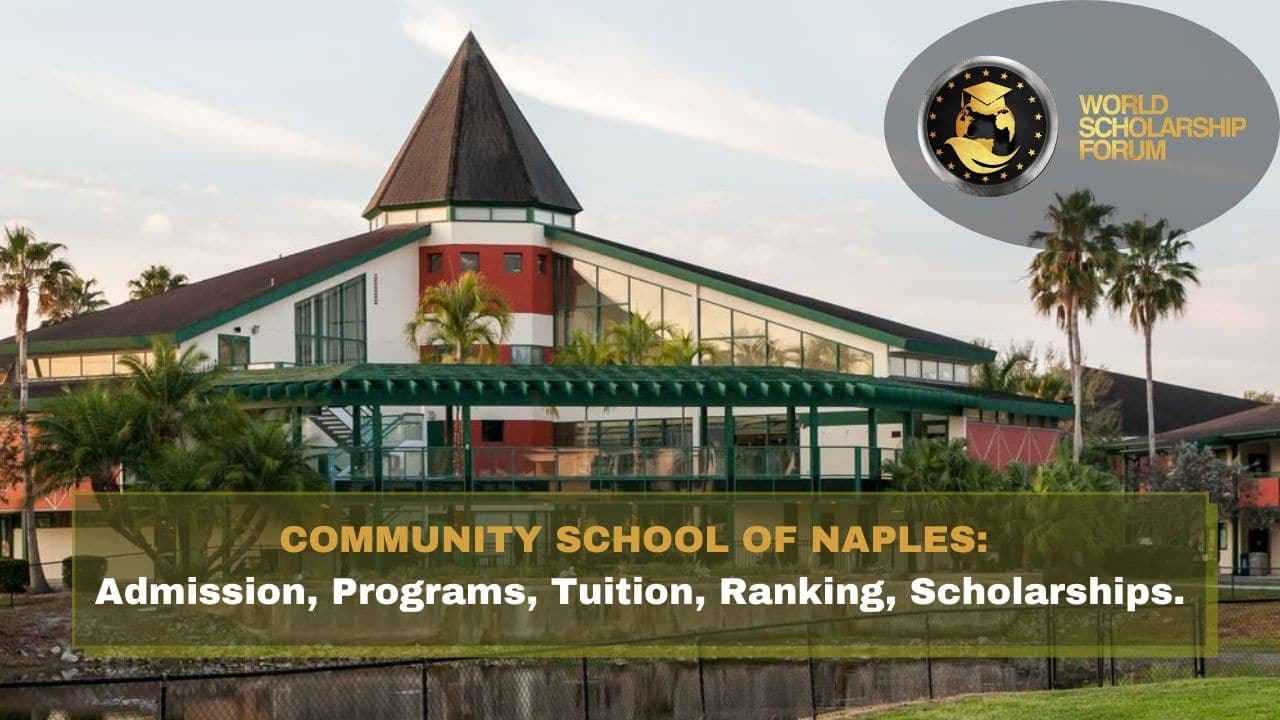What’s keeping you from becoming a top plastic surgeon in the United States? Is one of them the challenge of finding schools? Then you’ve come to the right spot since we’ve put together a list of the best colleges for plastic surgery in the USA.
People might associate plastic surgery with nose jobs and reality TV stars. However, this specialization is critical to efficient cancer management for many patients.
Cancer therapy can occasionally impair the function or appearance of a physical component. Reconstructive plastic surgery can assist in the correction of these alterations.
For ambitious doctors, plastic surgery has become one of the most profitable areas. A residency program in plastic surgery is available at several medical colleges in the USA. The USA’s best colleges for plastic surgery are determined using statistics such as mean GPA and expert rankings.
Plastic surgery is a rapidly expanding profession worldwide. With 6,900 plastic surgeons, the United States of America ranked first in the world in 2019.
The ACGME has authorized 67 integrated plastic surgery colleges in the United States, with 148 integrated plastic surgery residency programs available.
Table of contents
- Who Is A Plastic Surgeon
- Why Study At Colleges For Plastic Surgery In The USA
- Which Body Accredits Colleges For Plastic Surgery Programs In The USA
- How Much Does It Cost To Enroll In Colleges For Plastic Surgery In The USA
- How Many Years Does It Take To Become A Plastic Surgeon
- How Does One Apply To Colleges For Plastic Surgery
- Requirements For A Plastic Surgeon’s Undergraduate Education
- What Are The 10 Best Colleges For Plastic Surgery In The USA
- Conclusion
- Reference
Who Is A Plastic Surgeon
A plastic surgeon is a licensed medical doctor specializing in tissue transfer, body sculpting, laser surgery, patient interactions, trauma care, and primary surgery procedures.
Plastic surgeons spend years honing their skills in the delicate art of restoring faces and other body parts. They do complex treatments like repairing a child’s cleft lip, reconstructing breasts following a mastectomy, and reducing scars.
They spend their days monitoring surgical patients, meeting new patients to discuss operations, and consulting with colleagues on complex surgeries.
According to the American Society of Plastic Surgeons, they may use microscopes to do reconstructive microsurgery to mend tiny nerves and blood arteries that are smaller than a few millimeters wide.
They respond to medical emergencies that may necessitate reattaching severed body parts, and they improve patients’ lives by boosting aesthetics and restoring function with modern skin grafting techniques.
When discussing cosmetic procedures, sensitivity and listening skills are crucial. All standard procedures are breast augmentation, liposuction, facelifts, rhinoplasty, tattoo removal, and stomach tucks.
The benefits and hazards of surgery are explained to the patient by the plastic surgeon. The work can be rewarding when patients are delighted with the outcomes and acquire self-confidence due to their new appearance.
Plastic surgeons earn $479,000 per year on average, second only to orthopedic surgeons ($511,000), according to the 2020 Medscape Plastic Surgeon Compensation Report. The compensation of a plastic surgeon is commensurate with the education and training required for this highly specialized profession.
Doctors with less technical training, such as pediatricians and family medicine doctors, receive an average income of $232,000 and $234,000, respectively.
Read About: 15 Best Medical Schools for Orthopaedic Surgeons In 2024
Why Study At Colleges For Plastic Surgery In The USA
Studying at one of the best colleges for plastic surgery in the USA is always a plus. This is since they provide not just the finest in classroom learning but also the best in on-the-ground education through access to research facilities.
In addition, their teaching style distinguishes them because they teach you to combine empathy, critical thinking, and professionalism in your responsibilities.
Let’s look at some of the reasons why they’re the finest.
Check Out: 17 Easiest Medical Schools to get into in 2024 | Full Guide
1. The Ability To Think Critically
The problem-based learning method is well-known among the leading medical universities in the United States. Students become more active in exploratory and research sessions due to this.
2. Understand How To Look After Your Patient
Aside from the core courses taught at any medical school worldwide, studying at one of the best colleges for plastic surgery in the USA exposes you to programs in psychology, patient care, interpersonal and communication skills, and ethical principles.
These additional courses are designed to provide you with the most up-to-date information on delivering the finest care to your patients, both physically and mentally, psychologically, and otherwise. Knowing how to interact and listen to your patients is essential as a doctor.
3. Exposure To Research Establishments
Medical colleges place a strong emphasis on research in the United States, with the American Institute of Higher Education allocating significant monies to this purpose.
As a student, you can take advantage of the best research resources and cutting-edge facilities available and be a part of groundbreaking medical discoveries.
Which Body Accredits Colleges For Plastic Surgery Programs In The USA
The Accreditation Council for Graduate Medical Education (ACGME) is a private, non-profit organization that accredits over 12,095 residency and fellowship programs in 157 specialties and subspecialties across the United States, impacting over 150,674 residents and fellows.
Approximately 865 sponsored institutions provide educational instruction. One in every seven active physicians in the United States is a resident or fellow.
Graduate Medical Education (GME) programs help physicians who have completed medical school to continue their education.
The ACGME’s mission is to improve healthcare quality in the United States by providing access to and advancing the quality of graduate medical education for physicians in training through accreditation.
It was founded in 1981 due to a consensus in the medical community for an independent accrediting organization for residency programs.
GME accreditation is entirely optional. Residents must finish an ACGME-accredited residency program to be eligible to take board certification tests, and residency programs must be ACGME-accredited to receive Medicare graduate medical education funding.
How Much Does It Cost To Enroll In Colleges For Plastic Surgery In The USA
Knowing about the best plastic surgery colleges in the USA is one thing; knowing how much it costs is quite another.
Considering the quantity of schooling and specialized training necessary, plastic surgeon education costs are relatively high. The average price of tuition, fees, and room and board for the 2019-2020 academic year was $30,500, according to EducationData.org.
A four-year degree from a public university, paying in-state rates, was projected to cost $87,000 on average, whereas a four-year degree from a private institution costs $199,500.
Four years of medical school costs are equivalent yet vary greatly. For example, the 2019-2020 academic year at Columbia University cost $68,886.
On the other hand, the Grossman School of Medicine at New York University was tuition-free, with fees of only $3,950 for this highly competitive school.
The cost of attending a college for plastic surgery in the USA depends on the school.
How Many Years Does It Take To Become A Plastic Surgeon
Before receiving a license to practice as a plastic surgeon, you must complete 13-14 years of school and training. You must first obtain a bachelor’s degree, which takes four years to complete. Pre-med, biology, chemistry, and other scientific programs can help you prepare for medical school.
However, your undergraduate major usually doesn’t matter, and some medical schools prefer liberal arts degrees. Before applying to medical school, you must complete an undergraduate degree and take the Medical College Admission Test (MCAT).
Medical school curricula typically focus on basic primary care and run for four years, with the first two years divided between classes and laboratories. Anatomy, pharmacology, pathology, and medical ethics are among the subjects you’ll study.
The last two years of medical school will be devoted to clinical practice, during which you will participate in a clerkship or internship.
This course will teach you how to practice medicine, surgery, and advanced patient care. Before starting a residency, clerkships and internships are performed. After graduating from medical school, you can apply for a residency program.
Residency programs can last up to 7 years and teach you in your field of expertise. However, surgeon residencies are typically 5 or 6 years. Letters of recommendation, a curriculum vitae, medical school transcripts, a dean’s letter, and a statement of intent are all required to apply.
You will get training in all plastic and reconstructive surgery fields, including facial reconstruction, hand surgery, and reconstructive breast surgery, via clinical practice at hospitals and other medical facilities.
Following graduation, you may be eligible for a fellowship to receive additional training. Burn, craniofacial, breast augmentation, hand, and cosmetic plastic surgery are some specializations available during fellowships.
How Does One Apply To Colleges For Plastic Surgery
While plastic surgeons have no unique major, their education and training become increasingly specialized as they progress through their degrees. More information about plastic surgeon education requirements, from an undergraduate degree through fellowship training, can be found below.
Requirements For A Plastic Surgeon’s Undergraduate Education
You do not need a specific undergraduate major, but you must finish certain courses to be admitted into medical school. Some institutions offer pre-med programs that allow you to select coursework that will prepare you for medical school while still allowing you to pursue your major.
Courses in the hard sciences, such as biochemistry, biology, and physics, as well as behavioral science subjects, such as psychology and sociology, and other non-scientific courses, such as writing, are frequent prerequisites.
You can apply to take the Medical College Admission Test (MCAT) once you graduate or are about to graduate. The exam covers material covered in medical school prerequisite courses.
While the exam may be taken at any time, it is suggested that you take it as soon as possible to ensure that you receive your results in time for medical school applications and that you have enough time to repeat it if required.
Graduate Plastic Surgeon Education Requirements: Medical School
Admissions criteria vary by institution, but in addition to necessary coursework and MCAT scores, most medical schools need letters of recommendation. Some colleges may also want evidence of strong character, leadership, or other skills.
The first two years of medical school are spent learning anatomy, histology, clinical medicine, and human health and illness in the classroom and the lab. Clinical rotations in teaching hospitals during the last two years provide you with hands-on experience inpatient evaluation and treatment in several disciplines.
Elective courses or activities that expand your education or explore your field of interest are typically recommended.
Before graduating from medical school, you must pass the first two stages of the United States Medical Licensing Exam (USMLE). Before applying to a residency program, you would take the first step at the end of your second year of medical school and the second step in your fourth year.
Multiple-choice questions and simulations assess one’s knowledge and talents in medical contexts.
Plastic Surgeon Residency Education
A residency program is when you receive specialized training in your chosen specialty; for example, an aspiring plastic surgeon might select a residency in plastic surgery.
In addition to USMLE scores, a CV, and medical school records, residency programs often require interviews to examine applicants’ character and leadership abilities. These programs are generally quite selective, with just a few candidates accepted each year.
Plastic surgery residencies are usually 6 years long. During your first several years, you’ll learn about general surgical topics, including neurosurgery and transplant surgery. This is also the time when you will take the USMLE Step 3 exam.
You’ve been trained in all aspects of plastic surgery over the previous years, including general plastic surgery, aesthetic and craniofacial surgery, and hand and reconstructive surgery.
Finally, after completing residency training and passing all portions of the USMLE, a student can get a medical license from their state board. They can also get certified by the American Board of Plastic Surgery, although it isn’t necessary.
What Are The 10 Best Colleges For Plastic Surgery In The USA
Here is a compiled list of the best colleges for plastic surgery in the USA;
Harvard University
The Harvard Plastic Surgery Residency Program provides great resident operative exposure across all services.
In the Harvard plastic surgery teaching services, there are about 40 key faculty members. The wide range of cases includes aesthetic, breast, craniofacial, cleft lip and palate, hand and upper extremity, lower extremity reconstruction, head and neck oncologic reconstruction, and microsurgery.
Founded In: 1636
Ranking: 1st
Tuition & Fees Approximately: 45,278 USD
Contact: 617-632-7827
2. Yale University
Their world-class surgeons and clinical experts at Yale Plastic and Reconstructive Surgery are devoted to improving the lives of adults and children impacted by congenital abnormalities, severe accidents, cancer treatments, and degenerative illnesses. Yale Plastic Surgery members have specialized knowledge in reconstructive, aesthetic, and extirpative plastic surgery. Their surgeons are globally known for their expertise in the most complicated and delicate surgeries as members of the Yale University School of Medicine Department of Surgery faculty.
Founded In: 1701
Ranking: 2nd
Tuition & Fees Approximately: 47,600 USD
Contact: 203.785.2571
3. Stanford University
The University’s School of Medicine is regarded as one of the best medical schools in the world. Plastic surgery covers everything from breast reconstruction to wound healing to scar and wrinkle removal.
Its Plastic and Reconstructive Surgery educational programs instill exceptional clinical skills and a solid dedication to academic and research interests.
Its curriculum encourages teaching and research in fundamental, clinical, and social medicine, as well as developing leadership skills in clinical practice.
Founded In: 1885
Ranking: 3rd
Tuition & Fees Approximately: 46,320 USD
Contact: (650) 723-6661
4. Dartmouth College
Dartmouth-Hitchcock offers two ACGME-approved plastic surgery residency programs.
After completing an ACGME-accredited program in surgery, neurological surgery, orthopedic surgery, otolaryngology, or urology, they offer a three-year independent training program that offers one job at the PGY6 level.
A six-year integrated resident job is also available. Our recruitment process is rotated every year. The chief resident is given more responsibility for organizing and modifying the program’s educational and clinical components during the program’s final year.
Founded In: 1769
Ranking: 4th
Tuition & Fees Approximately: 49,506 USD
Contact: (802) 447-0607
5. Duke University
The Duke Division of Plastic, Maxillofacial, and Oral Surgery continues a long heritage of distinction in plastic and reconstructive surgery research and patient treatment.
It offers comprehensive, individualized surgical care for both congenital and acquired abnormalities. Also, it provides a six-year comprehensive residency training program that qualifies doctors to head academic plastic surgery in the future.
They also provide residents, attending doctors, and medical students with advanced surgical training on fresh tissue.
Founded In: 1838
Ranking: 5th
Tuition & Fees Approximately: 49,506 USD
Contact: 919-681-3445
6. Johns Hopkins University
Medical students and residents can continue their medical training in cosmetic and reconstructive surgery at the Johns Hopkins Department of Plastic and Reconstructive Surgery in Baltimore, Maryland.
The Department of Plastic and Reconstructive Surgery provides cutting-edge therapies with a caring touch.
Its surgical education program focuses on assisting residents in honing their surgical skills and giving vital feedback to help them grow.
Founded In: 1876
Ranking: 6th
Tuition & Fees Approximately: 48,710 USD
Contact: +1 410-516-8000
7. Pennsylvania State University
The ACGME-accredited Plastic Surgery Residency at Pennsylvania State Health Medical Center is a six-year program that accepts two residents yearly.
The Department of Surgery aims to offer the most excellent quality treatment, enhance patient care through excellence in biomedical research, and educate and train the next generation of academic and community leaders in American surgery.
Suture Skills Clinics are offered to all third-year medical students.
Founded In: 1855
Ranking: 7th
Tuition & Fees Approximately: In-state 17,514 USD, Out-of-state 31,346 USD
Contact: 717-531-1368
8. University of Miami
The Institution of Miami is a private, nonsectarian research university in Coral Gables, Florida. The Plastic Surgery Division handles many patients recommended by physicians from throughout the country and around the world, and it offers the latest in cutting-edge research and technology.
Members of the University’s cosmetic and reconstructive surgery team are specialists in a wide range of complicated operations and bring a diverse set of medical abilities and training to the table.
Founded In: 1925
Ranking: 8th
Tuition & Fees Approximately: 45,724 USD
Contact: 305-243-4500
9. The University of North Carolina
In the eighteenth century, the Institution of North Carolina at Chapel Hill was the only public university with courses and graduate students.
They’ve created a program with remarkable strength and variety, tripled their clinical volume, and transformed their residency program from a three-year autonomous program to a six-year integrated one.
Their full-time staff provides aesthetic surgery, non-invasive cosmetic treatments, burn repair, pediatric plastic surgery, craniofacial surgery, hand surgery, body contouring, breast reconstruction, and microsurgery.
Founded In: 1789
Ranking: 9th
Tuition & Fees Approximately: In-state 8,591 USD, Out-of-state 33,673 USD
Contact: (984) 974-4466
10. University of Virginia
The Department of Plastic Surgery at the University of Virginia provides an integrated and an autonomous residency program.
Meanwhile, the mission of the Department of Plastic Surgery is to provide outstanding patient care, medical education, and scientific research in the field of plastic surgery locally, nationally, and globally.
The Department of Plastic Surgery at the University of Virginia has a long history and accomplishments. The training curriculum is well-established and well-proven, and the University of Virginia and Charlottesville provide an excellent study and family environment.
Founded In: 1819
Ranking: 10th
Tuition & Fees Approximately: In-state 15,192 USD, Out-of-state 44,365 USD
Finance and Admission Office Contact: +1 434-924-0311
Conclusion
There is always a demand for plastic surgeons in all areas of the United States. However, you must finish a residency program from an authorized medical school to become a certified surgeon.
The information in the preceding article is crucial for determining the best colleges for plastic surgery in the USA. Scrutinize it for assistance.
Reference
- Best Colleges for Plastic Surgery
- What Is Required to Become a Plastic Surgeon
- Plastic Surgeon Education Requirements and Career Information
- The 10 Most Common Plastic Surgery Procedures





